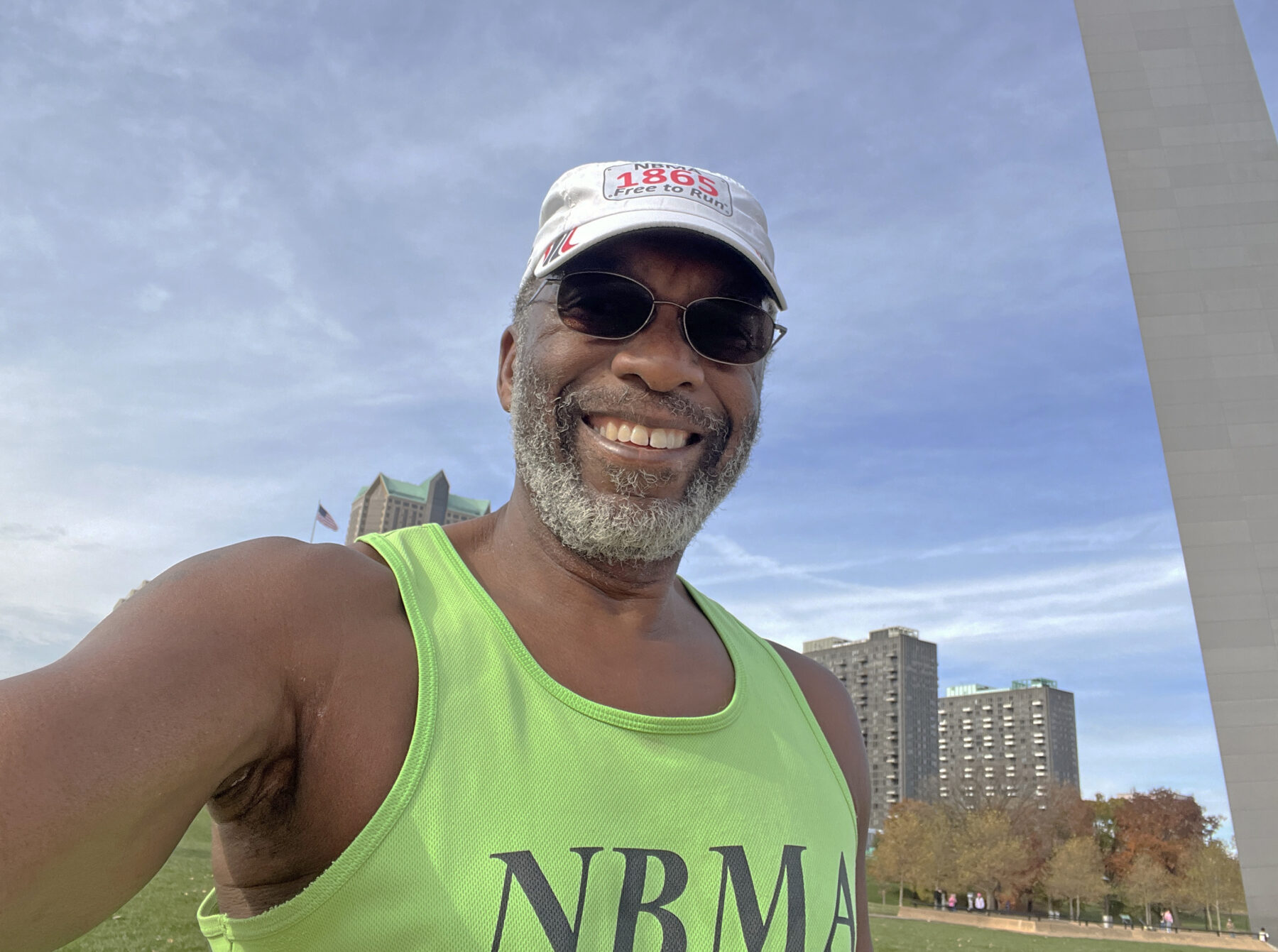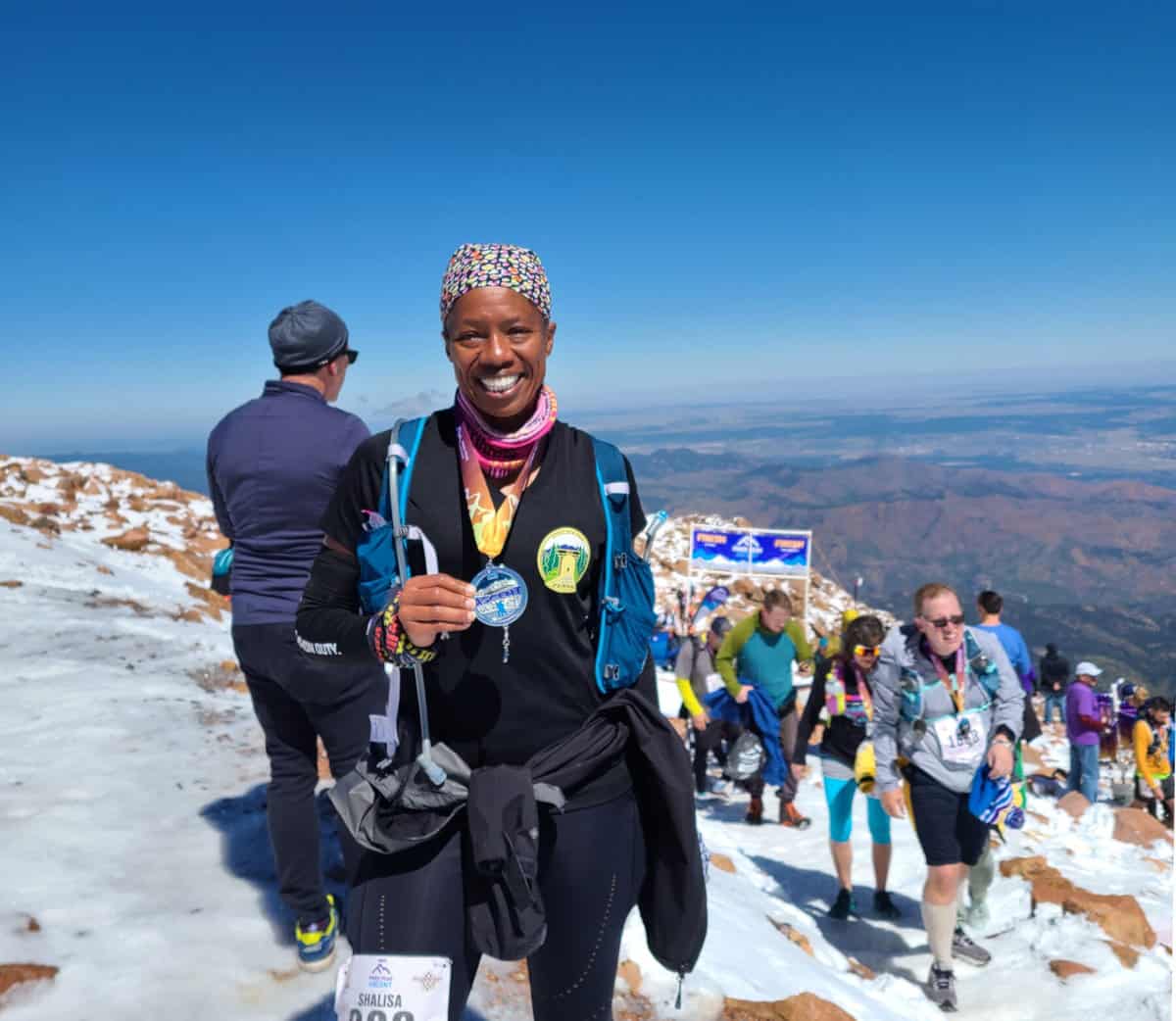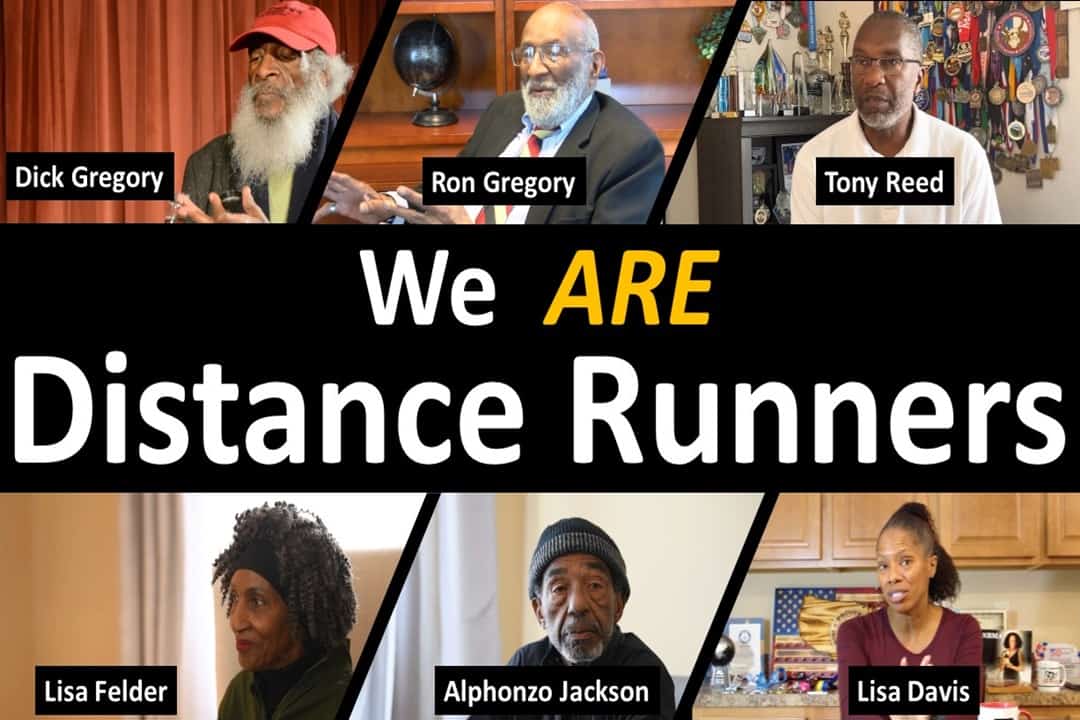About 60 runners in the U.S. have completed what seasoned marathoners refer to as “the hat trick” — 100 marathons, a marathon in each state, and a marathon on all seven continents.
Just three of those runners are Black. Two of the three, Lisa Davis and Tony Reed, attended the same grade school in St. Louis.
So, maybe that Ubiquitous Local Question should apply not only to you where you went to high school, but where you went to elementary school as well.
In their case, the answer is Clark Elementary, which was situated on Union Boulevard and closed in 2009. Reed graduated in the late 1960s. Davis attended first and second grade in the mid ’70s, then moved to Chicago.
Among their other groundbreaking achievements: In 2007, Reed became the first African American to run marathons on all seven continents. A decade later, Davis was the first African American woman to finish seven marathons across seven continents — in seven days.
Reed chronicled their careers in a 40-minute documentary, “We ARE Distance Runners: The Marathon Hat Trick,” which premiered at the St. Louis International Film Festival last fall.
The movie also features the achievements of St. Louisans Ron and Dick Gregory. Ron was a three-time Missouri Cross Country Champion and set the national high school record in the mile in 1956 (4:19.2). Dick, a renowned comedian and advocate for social justice, won the 1950 and ’51 Missouri Cross Country Championships, the 1951 Missouri State Mile Championship, and staged his run against hunger from Los Angeles to New York in 1976.
Reed plans to expand on the theme in a full-length version of the film.
Running from Diabetes
Reed started running after being diagnosed as prediabetic. Unwilling to take insulin, he decided to take up running and found inspiration in the Gregory brothers. Ron was cross country coach at Soldan High School, where his mother worked, and Dick’s Hunger Run had captured his attention.

Tony Reed at the base of the Gateway Arch.
A CPA and IT manager, Reed noted the importance of running to setting professional and personal goals at a trade conference in 2001, mentioning that he was closing in on 50 marathons. After hearing his presentation, fellow runner Charlotte Simmons proposed that other Black runners join him to celebrate his 50th. They ran together in Dallas in 2003 and enjoyed the fellowship, the feeling that they weren’t alone. The following year, Reed ran the St. Louis Marathon, which passed housing projects near downtown, similar to his boyhood home in the Blumeyer Apartments on North Grand.
“There were Black kids sitting on the curb who got up and ran a few blocks with me,” he said. “I could relate to their challenges and thought that an organization of African American runners should have a mission to provide role models and scholarships.”
Inspired by the dual sense of community and purpose, Simmons and Reed founded the National Black Marathoners Association (NBMA) in 2004, with members now from 48 states. To expand on the mission of mentoring, he produced and directed “Breaking Three Hours: Trailblazing African American Women Marathoners,” which was honored at film festivals in Seattle, New York, San Antonio, and Toronto.
…And A Late Bloomer
Davis took up running after 24 years in the Marine Corps, retiring at the rank of major with degrees in human resources, organizational management, and military studies. She ran her first marathon in 2005, after learning that Oprah Winfrey had run the Marine Corps Marathon a decade earlier.
“When I see Oprah, I see a woman with a very similar body type to myself,” she said. “At the time, I didn’t know any marathoners who looked like me. Wealth and fame did not get Oprah across the finish line; hard work and consistency did. I felt inspired to do the same because I realized that I could work hard, too.”
Starting with the Marine Corps Marathon, she ran in six states between 2005 and 2014, learned of the 50 states challenge, then completed it in just 20 months. “I don’t play around with goals. I just dig in,” she said. “Running in 100 marathons wasn’t a goal. It just happened along the way.”
She ran the seven continents in seven days in 2017 and later became just the second woman of color to complete 10 JFK 50-mile events.
Sole Mates
Despite their local roots and similar achievements, Reed and Davis didn’t meet and realize their uncanny connection until the 2014 NBMA gathering in Spokane. Reed was more impressed with Davis’s achievements as a middle-of-the-pack runner who could inspire others than with their grade school connection. When he asked her to be part of his most recent movie, “I wasn’t sure my story was that interesting, as I’m not an elite athlete,” she said. “But then I came to understand that this film would motivate other non-elite African Americans to run. That made it meaningful.”

Lisa Davis at the summit of Pikes Peak.
Reed included Ron Gregory as well as footage from an interview he recorded with Dick Gregory when Dick was enshrined in the National Black Distance Running Hall of Fame, shortly before his death in 2017. All four share achingly poignant stories of runners approaching them at the start of a marathon to tell them that they didn’t belong, that they should run shorter races.
“You know Missouri is the Show Me state, so I think that I can show you better than I can tell you,” said Davis, who will be inducted into the National Black Distance Running Hall of Fame this year. She hopes people walk away from the film with the courage to put aside “society’s limits of what you can do. Be your own champion and inspire and motivate yourself.”
After running 132 marathons, founding the NBMA, enshrinement in multiple distance running halls of fame, writing five books, and directing movies, picking a pinnacle achievement is easy for Reed. And it’s none of the above.
“Every day, I hear about people dying because of complications of diabetes,” he said. “So, all these years later, to walk my daughter down the aisle, to play with my grandchildren, and do everything without insulin: That’s what I’m most proud of.”
Author: Kathleen Nelson is a regular contributor to Terrain Magazine.


Leave A Comment